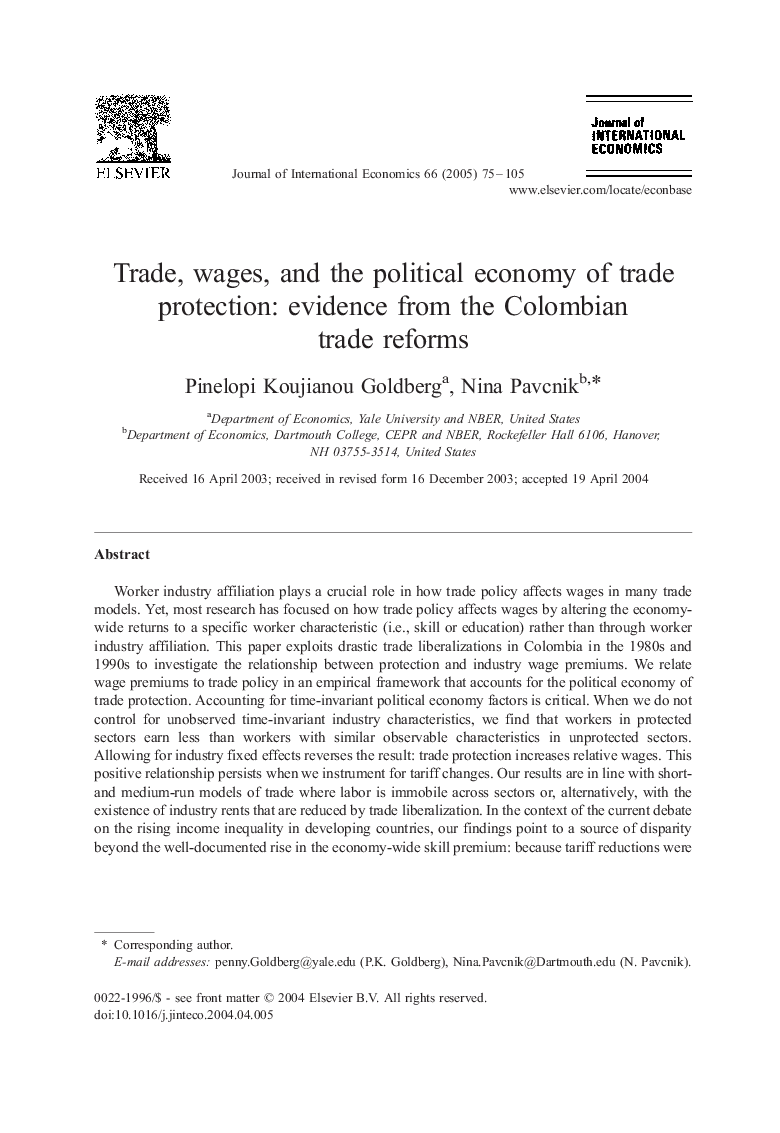| Article ID | Journal | Published Year | Pages | File Type |
|---|---|---|---|---|
| 10477049 | Journal of International Economics | 2005 | 31 Pages |
Abstract
Worker industry affiliation plays a crucial role in how trade policy affects wages in many trade models. Yet, most research has focused on how trade policy affects wages by altering the economy-wide returns to a specific worker characteristic (i.e., skill or education) rather than through worker industry affiliation. This paper exploits drastic trade liberalizations in Colombia in the 1980s and 1990s to investigate the relationship between protection and industry wage premiums. We relate wage premiums to trade policy in an empirical framework that accounts for the political economy of trade protection. Accounting for time-invariant political economy factors is critical. When we do not control for unobserved time-invariant industry characteristics, we find that workers in protected sectors earn less than workers with similar observable characteristics in unprotected sectors. Allowing for industry fixed effects reverses the result: trade protection increases relative wages. This positive relationship persists when we instrument for tariff changes. Our results are in line with short- and medium-run models of trade where labor is immobile across sectors or, alternatively, with the existence of industry rents that are reduced by trade liberalization. In the context of the current debate on the rising income inequality in developing countries, our findings point to a source of disparity beyond the well-documented rise in the economy-wide skill premium: because tariff reductions were proportionately larger in sectors employing a high fraction of less-skilled workers, the decrease in the wage premiums in these sectors affected such workers disproportionately.
Related Topics
Social Sciences and Humanities
Economics, Econometrics and Finance
Economics and Econometrics
Authors
Pinelopi Koujianou Goldberg, Nina Pavcnik,
